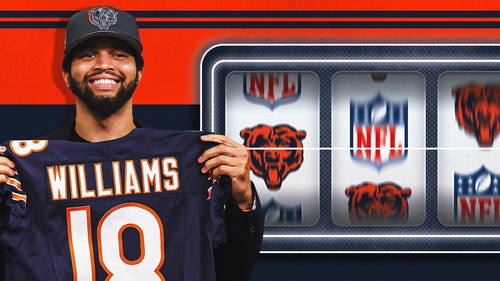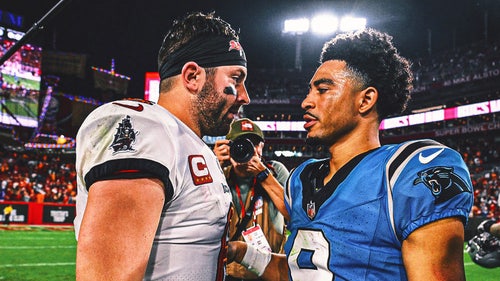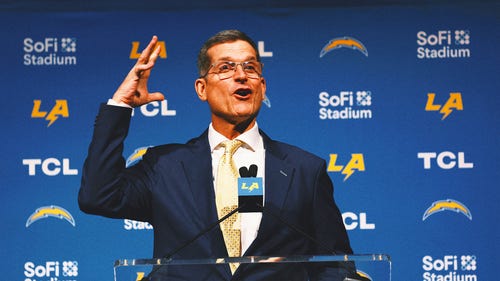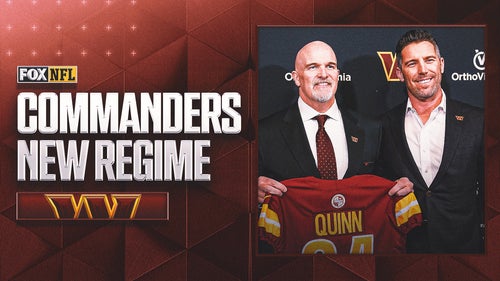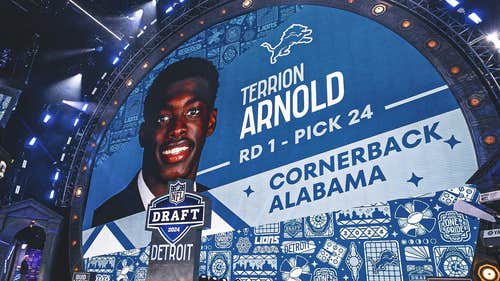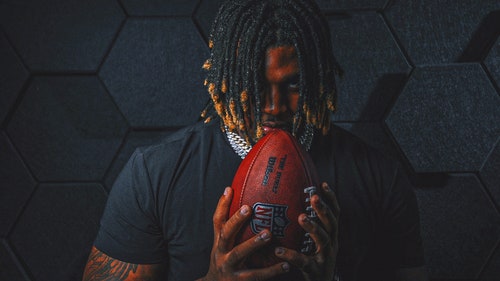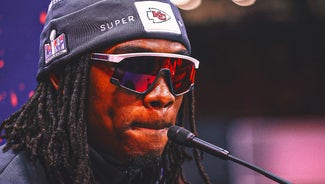
Wild-card games' top officiating calls
You can just feel the NFL playoffs in the air, can't you?
I know I could . . . and I had the hand-warmers to prove it, being on the scene in the 20-degree temperatures in Philadelphia for the Packers-Eagles wild-card game at Lincoln Financial Field.
There were four pretty well-played and officiated games this weekend. Besides the cold weather, another thing that signals the playoffs are here is fewer penalties. Only 18 penalties were called in the Saturday games (13 in the Saints-Seahawks game; five in the Jets-Colts game) and 16 in the Sunday games (seven in the Ravens-Chiefs game; nine in the Packers-Eagles game).
A low number of fouls is typical of playoff-caliber football. Generally, the more disciplined teams are the teams that advance into the playoffs. The average number of penalties during the regular season was more than 13 per game, while the four wild-card games averaged 8 1/2.
Look for that trend to continue.
Nothing too controversial, but let's get to the weekend's most interesting calls.
1. Green Bay at Philadelphia
THE SITUATION: The Eagles had the ball and were attempting a 2-point conversion with 4:02 left in the game. The Eagles trailed, 21-16. (Watch video above)
THE PLAY: Eagles quarterback Michael Vick completed a pass to the back of the end zone to Brent Celek, but the officials ruled Celek went out of bounds and re-entered the field. It was ruled an illegal touch.
MY TAKE: While the penalty call was right, the initial enforcement wasn't. The penalty for an illegal touch is not a loss-of-down penalty. Since Celek caught the ball for what would have been a successful 2-point conversion, the Packers had to accept the penalty, setting up an Eagles re-try from the 7-yard line.
At least one of the officiating crew members, or perhaps one of the alternate officials, stepped up and told referee Pete Morelli that the penalty could not be declined.
I will admit it looked sloppy, but they got it right.
Michael Vick and the Eagles were given another chance, which turned out to be unsuccessful. If that same play had occurred on the last play of the game, the game would have been over and the Eagles wouldn't have gotten the retry, because a foul by the offense during the last play of the game ends the game, loss of down or not.
2. Green Bay at Philadelphia
THE SITUATION: The Eagles had the ball fourth-and-1 from their 23-yard line with 13:04 left in the first quarter. There was no score.
THE PLAY: Philadelphia punter Sav Rocca kicked 36 yards to the Green Bay 41, where the Packers' Brandon Underwood touched the ball and it was recovered by Philadelphia's Omar Gaither.
MY TAKE: Underwood was deemed to have touched the ball because he was not "passive" when he was overpowered into the ball by the Eagles.
Passive would be defined as standing in the area of the ball without blocking an opponent. If you are passive and are knocked into the ball, you are deemed not to have touched the ball. Since Underwood was blocking, he was responsible for the touch.
Though the Eagles recovered the ball, they couldn't convert it into any points as David Akers missed a field goal.
3. Baltimore at Kansas City
THE SITUATION: Kansas City had the ball first-and 10 from its 46 with 19 seconds left in the third quarter. The Chiefs trailed 23-7.
THE PLAY: Chiefs quarterback Matt Cassel went back to pass and was hit by Baltimore's Lardarius Webb while he was attempting to pull the ball back. The ruling on the field was that Cassel fumbled and the ball was recovered by the Ravens. Kansas City challenged and the call was reversed to an incomplete pass.
MY TAKE: This was the classic tuck play.
Rule 3, Section 2 states "when a team ‘A’ player (passer) is holding the ball to pass it forward, any intentional forward movement of his hand starts the forward pass, even if the player loses possession of the ball as he attempting to tuck it back toward his body."
This was clearly a correct reversal, but is it time to look at this rule? Cassel was not attempting to pass the ball when it came loose. By instinct, referee Mike Carey ruled this a fumble because that's what it appeared to be.
I think it's time to change this rule. A pass should only be ruled incomplete if the ball comes loose in the actual act of passing the ball. If it comes loose in the tucking motion, then it should be a fumble.
I would support a rule change, although it took me a long time to get to this point. I'm sure it's no consolation to the many Raiders fans around the country.
4. New York Jets at Indianapolis
THE SITUATION: The Jets had the ball first-and-10 from their 46 with 53 seconds left in the game. The Jets trailed 16-14.
THE PLAY: Jets quarterback Mark Sanchez passed to Braylon Edwards for 9 yards and Edwards was tackled by Jacob Lacey. Edwards fumbled, but recovered the ball. The play was reviewed by the replay assistant, and the ruling was confirmed.
MY TAKE: The process of the catch when going to the ground does not come into play here as Edwards got both feet down and was not going to the ground,. The contact by the defender knocked the ball loose, and it was the contact that drove him to the ground.
It is, therefore, deemed to be a catch and a fumble, and Edwards recovered his own fumble.
5. New York Jets at Indianapolis
THE SITUATION: The Jets had the ball fourth-and-5 at their 25 with 3:02 left in the game. The Jets led 14-13.
THE PLAY: Jets punter Steve Weatherford kicked it 46 yards, but Indianapolis' Taj Smith was called for a 5-yard running-into-the-kicker penalty, giving the Jets a first down at the 30-yard line.
MY TAKE: That was a big gutsy call by a gutsy referee — Gene Steratore — and it was a correct one.
Although there was a push, it was early and Smith made contact with Weatherford. The penalty is not an automatic first down, but because it was a fourth-and-5, the yardage gave the Jets a first down.
This was not a case where Smith was blocked into the kicker. He regained his balance after the push, and he could have avoided Weatherford.







































































































































